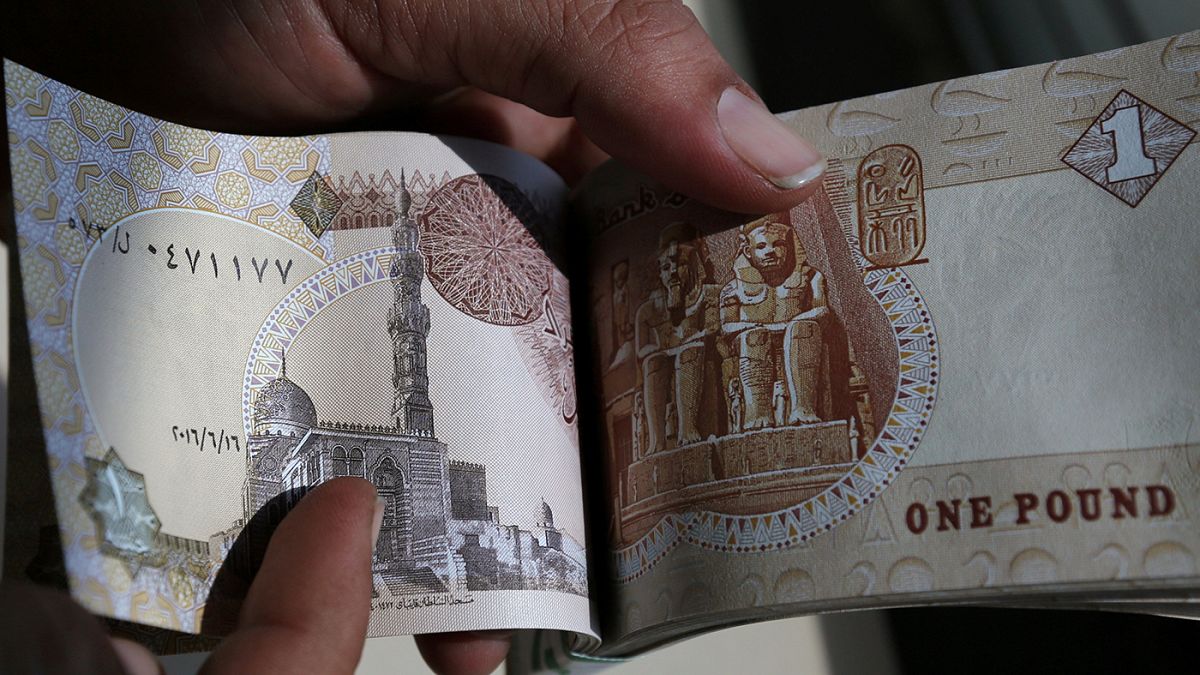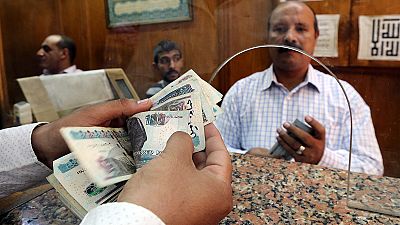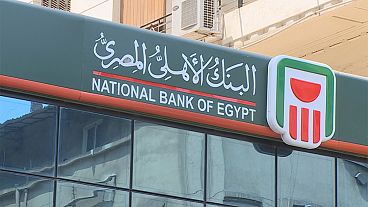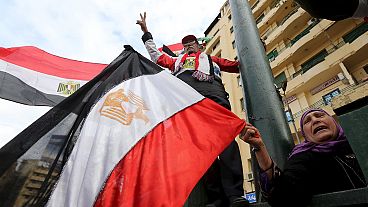Egypt is to get an International Monetary Fund bailout loan, but can it bring down public debt, control inflation and protect the country's poor?
Egypt has finally won International Monetary Fund approval for a three-year, $12 billion (11.16 billion euros) bailout programme aimed at reviving its struggling economy
But can it succeed in bringing down public debt and controlling inflation while also protecting the country’s poor?
For thoughts on that, Euronews Cairo correspondent Mohammed Shaikhibrahim spoke to Richard Banks, consulting editor with Euromoney for the Middle East and North Africa region and asked: “Given the current state of Egypt’s economy, is the IMF loan the last [chance] solution for Egypt”?
Banks said: “I think that the IMF package – and it is a package, one must remember – will bring, of course other multilateral, and another bilateral funds; it will bring an agreed framework for the direction of public policy [and that framework] is almost as important, because it is a way for international investors to change their perception of Egypt.”
Egypt got the go-ahead for the IMF loan in August but had to secure around $6 billion (5.58 billion euros) in bilateral financing for the deal to be completed. That money is coming from China, the United Arab Emirates, G7 countries, bank loans and bond issues.
Currency floats
On November 3 Egypt’s central bank gave up trying to peg the currency – the pound – to the US dollar, allowing it to devalue by almost half.
#Egyptian Pound Drops Almost 50% on De-pegging from U.S. Dollar; National Bank of Egypt Accepts #IMF Loan Conditions https://t.co/xLvWHV0NwHpic.twitter.com/isgPuH4WX4
— RazorForex (@RazorForex) November 5, 2016
That followed a considerable period when Egypt struggled to attract dollars and revive its economy. Tourists and investors have been avoiding the country due to political instability since the 2011 uprising that ended Hosni Mubarak’s 30-year rule.
Euronews’ Mohammed Shaikhibrahim asked Richard Banks: “Do you think the Egyptian economy will be able to withstand the conditions imposed by the IMF?”
Banks’ replied: “Egypt has got deep structural problems, the whole subsidies system if not fit for what it’s meant to do. It is subsidising products, not people. You need to give the money to the poor people, you need to make sure that the poor people have a minimum level and can survive and have education and healthcare. You do not subside gasoline or bread, you subsidise the people.”
Subsidies slashed
Floating the currency was one thing the IMF encouraged Egypt to do.
Others included cutting subsidies for fuel – which happened on November 4 leading to a jump in prices – and the introduction of value-added tax to raise revenues. The programme also requires legislation to reduce Egypt’s public sector wage bill.
That is all needed to help get government spending under control. But to avoid hardship food subsidies are being increased along with direct transfers to poorer Egyptians.
However with inflation running high in the import-dependent country, everyday essentials are becoming unaffordable for many, which could spark further protests by Egypt’s people.
Euromoney’s Richard Banks told us that is an important issue: “You put your finger exactly on the problem. How much pain can the people take? The problem is that the people are used to paying prices that are not right. What you buy in Egypt with your Egyptian pound does not cost one Egyptian pound, it costs two pounds, or whatever.
“You’ve got to change that system. I think everybody understands that. The challenge is how do you do it without making people starve, essentially.
“It’s about managing change and you are absolutely right, there is a risk that if the change is not managed correctly that you have another revolution. But as I said you could have a revolution every afternoon – it’s not going to solve the problem, guys.”
The hope is the IMF loan will make Egypt more stable, not lead to further unrest.
Sisi sends security forces across Cairo to bar protests as his economic mismanagement leads to IMF-imposed austerity https://t.co/sURJQfn6i5
— Kenneth Roth (@KenRoth) November 12, 2016
What the IMF said
IMF Managing Director Christine Lagarde described the Egypt bailout as a “homegrown economic programme” that the IMF will support “to address longstanding challenges to the economy”.
“These include a balance-of-payments problem manifested in an overvalued exchange rate and foreign exchange shortages, large budget deficits that led to rising public debt and low growth with high unemployment,” Lagarde said. “The authorities recognise that resolute implementation of the policy package is essential to restore investor confidence.”
#Egypt to receive $2.75 bln from #IMF on Friday if board approves loan https://t.co/wBHQuJYzhypic.twitter.com/tvavDBH1P7
— Ahram Online (@ahramonline) November 11, 2016
Lagarde also emphasised that Egypt needs to make structural reforms to its economy such as streamlining regulations for business start-ups, passing insolvency reforms and labour reforms aimed at increasing participation in the work force.



